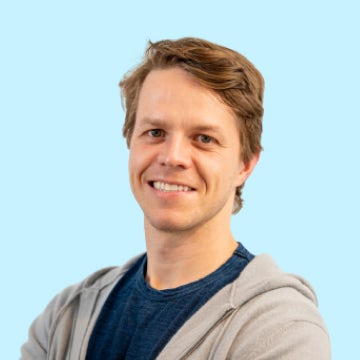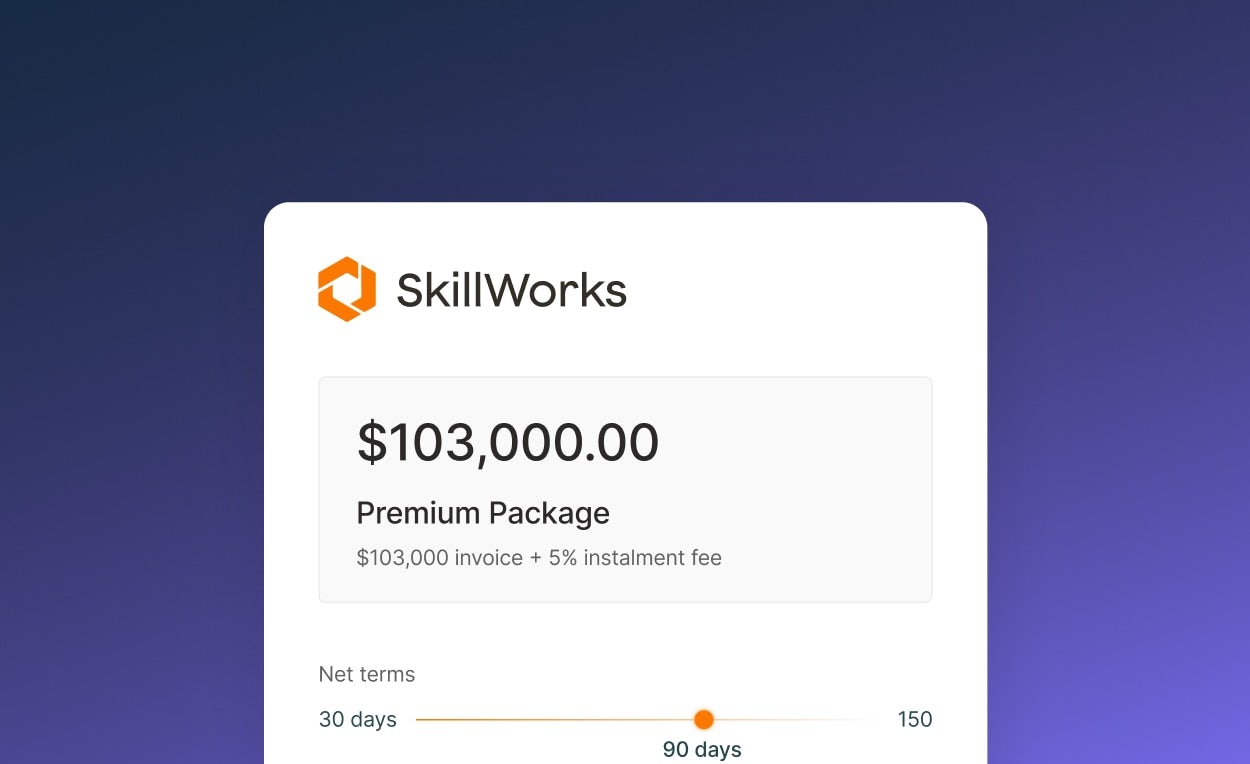This week we had Baxter Lanius, CEO and Founder at Alternative join the Bowery Capital Startup Sales Podcast to discuss how is building a sustainable, profitability focused startup.
Topics include:
- The difference in a Private Equity vs Venture Capital mindset
- Strategies for fundraising and scaling in a bear market
- Why he made the jump from investor to founding and building a company.
Podcast Transcript:
Eugene: Baxter, welcome to the Capital Start-Up Sales Podcast. How you doing?
Baxter: I am good, Eugene. How are you doing? Thanks for having me.
Eugene: Yeah, I’m doing well. Happy to have you. I’m excited to have you on this show I think for a couple of reasons. One, you know, you’re a first-time founder, company is relatively new, very early stages. But also, you have such a unique background coming from the private equity space, not so much like the VC space that a lot of folks that I work with have come from. So, I’m really excited to have you on and kind of hear about your background and what you’re doing in Alternative?
Baxter: Yeah, no, I appreciate it. I think that many founders in the space today, I’ve kind of been around the startup ecosystem, venture capital backed companies for many years. And we definitely take a much different approach and different angle. And I think that angle creates a lot of differentiation for us in the market. I really started my career on the investing side of the fund called Victory Park Capital, which is one of the first institutional investors in FinTech. They started investing in FinTech in 2010. I joined in 2014. And those formative years were really what defined my experience in FinTech and that was really FinTech 1.0, if even 1.0, to be honest. And we just learned a tremendous amount about what worked, what didn’t work, what were the consumer platforms, what were the b2b platforms that were able to be successful at the time.
I was there for about three years. I then joined Apollo Global, so $600 billion plus private equity business invested in technology companies. I was a principal at Apollo, and learned a very different skill set about value-oriented investing, about technology value-oriented investing, which is a very different part of the investment world, compared to the VC landscape, but that was also very formative and how to build a company today that really, potentially crosses the test of time, and really moves where the market is really moving. And that’s really why I started Alternative, but I’ll pause there.
Eugene: First off, I’d love to hear the difference between maybe your time at Victory Park and then Apollo. You said you’re doing very different things, maybe working with different kinds of companies. Was like the due diligence process different, was just everything different? Like how did you look at which companies you’re going to partner with? And I know that you’re invested and on the board for a lot of companies as well. So how did that kind of change over those six years?
Baxter: Yeah, so at Victory Park, I spent about 50% of my time focused exclusively on fintech investing and fintech credit investing. And so, the underwriting process there is much different than the underwriting process that’s more a little bit control-oriented at Apollo. The underwriting process at Victory Park is really about finding young, unique, differentiated fintech platforms that have a lending component, and getting in on the ground floor. And finding those opportunities and being able to invest in credit-oriented opportunities. So, I would think about consumer lending platforms, consumer buy now pay later, b2b lending platforms, b2b buy now pay later. And the approach was really all about growth. How do you invest early on with a platform that is growing to 50-to-100-to-$200 million platform.
When I went to Apollo, it’s really value-oriented, all cash flow-oriented investing. And by cash flow, we’re not, you know, it’s really not even EBITDA, its EBITDA less CapEx, EBITDA less fixed capital, infrastructure, and requirements, and how does that relate to the purchase price that you’re paying at the time? And how sticky is the solution? So, in the private equity sphere, it’s all control-oriented investing. It’s all about, how do you craft that business and how do you move with the business to then exit in five to seven years in a private equity-style leveraged buyout.
Eugene: Got it. Got it, especially coming from Apollo, how did that shape the way you thought about starting this company and maybe even getting your first round – or rounds – of funding? Maybe you can first give us, hey, what is the funding landscape for you? Did you raise around and like, how did you think about that maybe differently because you came from Apollo?
Baxter: Yeah, no, it’s a great question, Eugene. As I said before, Apollo is very value-oriented. And that taught me really how to build a fundamentally strong business model with really, really strong unit economics. And when we initially started Alternative back in the spring of 2021, we really wanted to figure out two things. One was, how are we differentiated and unique and doing something different in the market today, and how was the skill set that I’ve learned over the last 12 to 15 years of my career provided an angle that is also unique. And those were the two kind of call it, insights that I really drove forward on and tried to figure out as we were building Alternative. And in that model, I think the goal is, is not to raise a tremendous amount of money, not to raise a ton of money to dilute yourselves and raise just to raise.
The goal is really to raise, to build a budget, and to give yourself sufficient runway to build and accomplish those milestones that you’ve sought out to accomplish. And that’s really what we did with Alternative. So, we raised a smaller seed round in September of last year. We complemented that seed round with a credit facility, because our business relies on lending to businesses. And then we were off to the races. We’ve now built a team of 11 and we’re continuing to go to market and continuing to acquire customers and continuing to build the business from there. But I would say that that more conservative platform-oriented fundamental approach is really the platform that we’ve built that alternative.
Eugene: Yeah. Are there examples you can think of, of maybe how you’ve structured and built Alternative that might be different if you didn’t have your background at Apollo?
Baxter: I would say, so our business is really a b2b payments platform. We provide end customers credit to acquire more software and services solutions. So, if you’re Salesforce and you’re selling into an SMB – Salesforce can now finance their end customer, provide them capital to afford the Salesforce software solution. Now, in relation to that credit decision that we’re making, we’ve built a business that’s really credit-oriented and credit first, and built a business that will stand the test of time, and will take the right risk. I think a lot of companies that are in my position, are growth at all costs, and open the floodgates and provide capital to everywhere, irrespective of the risk. And that’s really not the business that we want to build and not the business that we want to grow. And that’s a very risk-on type of approach.
We want to acquire customers who are strong, sophisticated, high growth businesses, who want to unlock a tremendous amount of value to their end customers, and want to grow their business in a much more kind of conservative lockstep approach. And so, I would say that from a unit economics and fundamental business perspective, we are definitely much more risk averse on the credit-oriented side of the book. And especially as it relates to what’s happened in the macro environment, I think that that has done extremely well for us because we have a relatively small but very attractive yield book, from a credit perspective. And that’s a lot of what I would say that Apollo has taught me. It’s a long-term game, it’s not about just reaching a 30-day milestone or a 60-day milestone. We really want to build a business for years and years to come that’s fully differentiated in the space.
Eugene: Yeah. Is there anything you’ve maybe consciously or even subconsciously, kind of sacrificed or given up to focus on the business in this way, where you said, “Hey, I understand I’m going to be giving this up. But for me to build a lasting business, I’m gonna go this direction,” or is there something you said, “Hey, we’re gonna give this up?”
Baxter: Yeah, I mean, Eugene, you may laugh at this, but we turned down customers. We have acquired a tremendous amount of customers, and we’ve turned some down, because we don’t really believe that their business models will last for 12, 18, 24 months. And we don’t feel good about the risks that we would be taking. We really want to partner with those customers that are differentiated, that are well capitalized, that have strong unit economics that we can really build with and unlock value for. And so that’s a huge difference that approach that we’re taking relative to a lot of other platforms that are just, grow at all costs, take on as much risk as possible.
Eugene: Hm. Do you feel like it’s changed the way you think about the talent that you bring in now you’ve grown the team to 11, someone that is excited to join like an 11-person rocket ship versus a more calculated growing rocket ship? Like, do you feel like the profile of person that you’re attracting/hiring is different or more or less the same?
Baxter: Yeah, it’s a great question. I think that if you look at our team, especially on the business side and the operations side, many of the team members come from a more financially savvy background, for lack of a better word. So, whether that’s investment banking, or private equity, or other fintech platforms – and many people also come from backgrounds of businesses that grew at all costs and experienced massive layoffs and massive transitions with the business. And I think when they are aligned with Alternative, and they see how we’re building this business, we’re definitely not bootstrapped. We’ve raised a tremendous amount of capital, both on the equity and the debt side. But it is a little bit more fundamentally driven. And I think that experience is something that our team definitely resonates with, and recruits definitely resonate with as well, where we’re not just trying to get to our runway this six and eight months and grow as quickly as possible.
We want to build a really sophisticated, strong platform of a business that can expand into other business lines and has truly a unique, differentiated product. I think there’s another aspect of it is, as we go through a correction here, and like the macroeconomic challenges, we will continue to have a moat around what we’re doing, because not many businesses will be able to continue to capture VC dollars and continue to raise capital, and that will give us an opportunity to be further successful in this b2b payments ecosystem that is a trillion-dollar industry and trillion-dollar opportunity.
So, I do think that we attract talent, where they definitely see the long-term trajectory. There are not that many businesses, two or so that are doing what we’re doing with the angle that we have. And ultimately, the angle that we’re taking is going to be adopted by every single company in the next three to five years, guaranteed. No questions asked.
Eugene: Got it. Got it. That’s so interesting. I want to dive more into Alternative but before that, we’re recording this in May of 2022. So, with COVID, with the economy, with politics, there’s so much going on. Has that changed the way you’re thinking about building this year? Or is it really just going to reinforce the fundamentals and the foundation that you built the company on?
Baxter: I would say it’s definitely reinforced the fundamentals that we’ve built this company on. I would say that we have potentially evaluated how we can leverage other resources that may not be fixed cost oriented. So, as opposed to hiring somebody in growth, like let’s use a consultant for a little bit longer, as opposed to building and using another software services solution, let’s only use one CRM solution or one email contact database. And it’s changed a little bit. And I think the key question is, nobody knows where the world is going to be. And as it relates to every single expense, let’s be very, very refined, and make sure that there’s a specific return on investment attached to that dollar. And so, we’ve definitely continued to take that approach where $1 does not go out the door, unless we know that we can get $2 or $3, or $4 out of it. And we expect that for all of our employees. We expect that for all of our services providers, whether it’s legal or tax, or finance and accounting. And that’s really the mindset in this environment that I think people need to be adopting. And that’s definitely the mindset that we have as a business.
Eugene: Yeah, that’s definitely a shift I’ve seen across all different kinds of companies and verticals, late stage, early stage, I think focusing in on burn, whether you weren’t thinking about it, and now you have to or you were thinking about it, and now you’re thinking about it more, that seems to be a theme for sure with just the uncertainty. So, makes sense.
Baxter: Yeah. And people just don’t know. And I think when you don’t know, you want to be laser focused. You don’t want to have some kind of existential threat to lose your business. Especially with the amount of innovation and the amount of creativity and how revolutionary some of this business is. I mean, I’m always amazed at the founders and the world in fintech and all sorts of different end markets. The amount of innovation that’s going on is really incredible. And let’s hope it continues for years and years to come. And we all change the world.
Eugene: Yeah. What’s been your favorite part of jumping out of the finance world into building a company, being a founder, being a CEO. What’s been your favorite part of that?
Baxter: It’s just an amazing opportunity to build a business, to hire a team, to execute, to acquire customers, to build with customers. And that whole process. I would say that, the investment world is extremely exciting, extremely interesting. And that process is very granular, and very detail oriented. But day in and day out of building a company is something that’s really, really special, and I would advise everybody to take the plunge, and really building a team that’s energized and excited about what we’re doing. And I think that’s what’s really transformational for me is, you know, I wake up every day really ready to partner with companies and really to expand their business, because Alternative is all about, how do you drive revenue for our customer base? And that’s something that’s really special, and not everybody has that angle. And so, we work with companies at the seed stage, or even who are bootstrap businesses, services companies, branding, marketing businesses, and we partner with them, and figure out how to grow their business. And how do you come up with pricing mechanisms and pricing plans and financing plans, to allow them to acquire customers, and to increase volume and drive revenue growth, and we also work with larger companies and it’s all about, how do you continue the growth? And that type of partnership is something that’s really, really special and that’s an opportunity that I really haven’t experienced before.
Eugene: Yeah. And it seems like now you’re in the driver’s seat. You get to own all the good feelings that come with it, but also the stress and kind of the burden that comes with it. But there’s ownership across it, as you build the team and really partner with the customer. That’s what I’m picking up on.
Baxter: Yeah. Now, the ownership is important. And I think the ownership, it crosses over to everybody who’s involved with the business like Alternative, again, whether it’s service providers, whether it’s our customer base, and really trying to build a unique family and a unique mission, to really drive this industry forward, and create a platform in the b2b payments space, that creates efficiency across the board. If you’re on the AR side, or you’re on the collection side, or wherever you may be regarding billing for a business, we want to make your life easier. And it’s a really, really special place to be in terms of ownership, in terms of family, in terms of driving revenue growth, and in terms of really pushing the ball forward.
Eugene: Yeah. That’s great. So, tell me more about Alternative? I guess, in the b2b payments space, what is it doing that’s so different and why does it matter?
Baxter: Yeah, so the easiest way to understand what we’re really doing is, we’re a b2b buy now pay later solution. We also wrap in and encompass a number of different payment solutions, to ultimately empower your business, to accept all forms of business, and be able to also finance your customers. So, the key difference here is really, if you have any customer who needs an installment plan, who does not want to pay upfront for the specific service, who wants to pay overtime. If you have customers who are stagnant within your pipeline, and you want to figure out how to pry them out of that stagnant place in the pipeline, you can now offer a pay overtime solution to your end customer. And what this really does, is it really aligns your company even better with your customer base, and provides them the solutions and the opportunities that they need to pay for your service in a more efficient manner. That’s Alternative in a nutshell. We are also building and creating other invoicing solutions to create a lot of efficiency within the billing and invoicing environment. But that’s a lot, that’s to come. Today, we’re very focused on the b2b buy now pay later solution and b2b payment solutions.
Eugene: That’s great. If people want to find you and reach out to you, I guess first – are you hiring? And then two, yeah, what’s the best place if someone wants to say hi and connect with you, Baxter?
Baxter: Yeah. So, you can check us out online. Our URL is alternative.co, you can find me Baxter Lanius on LinkedIn or Twitter. Feel free to email me, baxter@alternative.co.
We are hiring for a number of different positions across both engineering, operations, strategy and growth. You know, really excited about the space and the opportunities to come and really look forward to hearing from you all.
Eugene: Well, Baxter, thanks so much for joining. Talk to you later.
Baxter: Really appreciate, Eugene. Awesome. Thanks so much.




